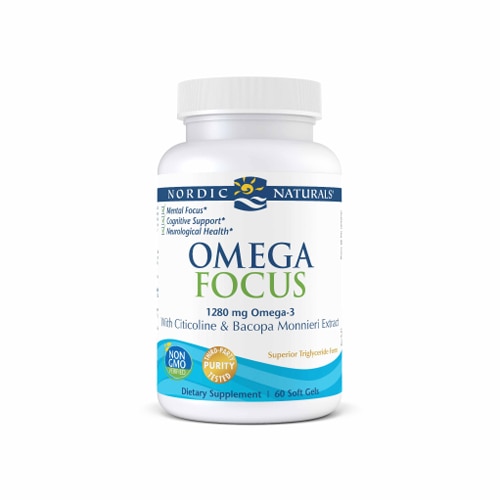If you say someone “wears their heart on their sleeve,” it’s taken as a compliment. But don’t you dare call someone “overly sensitive.” That feels rude and offensive, when, in fact, these are two different ways of saying the same thing. Someone who wears their heart on their sleeve freely expresses their emotions, which can come across as being vulnerable or sentient. The fact of the matter is these types may actually be genetically predisposed to hyper-react. They’re what’s been called a “highly sensitive person,” or HSP for short.

What is HSP?
First, let’s be clear what HSP is
not. HSP is not a mental health disorder. It’s classified as a personality trait that, like other traits, presents in various degrees. The term was coined in the mid-1990s by a research psychologist, Dr. Elaine Aron. She theorized this “innate survival strategy” was designed to help people who have more sensitive nervous systems cope with the world. She describes it as being “observant before acting.” That doesn’t sound so bad, now does it?
No, it’s not bad at all – nor is it uncommon. Roughly 15% to 20% of the population is considered a highly sensitive person. Could you be one of them? How should you handle the world and all its stressors if you are?
We will answer those questions below, plus discuss
ways to boost mental health while playing up your sensitivity. It may be more of a strength than you think.
4 Distinct Traits of a Highly Sensitive Person
Maybe you’ve overreacted a few times or cried over spilled milk. But being emotional doesn’t necessarily mean you’re a highly sensitive person. There are a few distinct indicators that characterize HSP:
Sensitive to stimuli – You are easily triggered by external and internal stimuli, such as pain,
hunger, light or noise. You are also prone to
overstimulation, or letting in too much information. This leads to you becoming overwhelmed and possibly needing time alone to decompress.
Increased emotional response – When stimulated, your emotions tend to be more exaggerated than others. For instance, you might be more disturbed by violence or conflict.
A rich inner life – You tend to have
deep personal relationships and a great appreciation for life. You cherish all the things that bring you joy.
Empathetic – You have highly active mirror neurons, which allow you to understand another person’s point of view. You also tend to pick up on the smallest, most subtle cues that others miss.
Obstacles Highly Sensitive People Face Every Day
This should come as no surprise: highly sensitive people are prone to stress. What exactly causes your stress is not always obvious or well-understood by those who are
not highly sensitive. To make matters worse, these stressors can occur on a daily basis. Below are the stressors to watch out for, whether you are a highly sensitive person or know someone else who is an HSP.
Sensing the expectations of others
Highly sensitive people can pick up on the needs and feelings of others, which is why you’re an expert on
how to tap into empathetic abilities. Unfortunately, it can also be stressful, because you hate disappointing people. Hence why saying “no” is both a challenge and a necessity for HSPs.
Dealing with conflicts
A highly sensitive person tends to be more aware when trouble is brewing in a relationship. You notice when someone isn’t communicating a problem or seems a little off one day. Being more in tuned to this type of tension can cause HSPs to stress the potential outcomes of a conflict – positive or negative.
Working through distractions
Most people don’t notice all the distractions they deal with throughout the day, but a highly sensitive person does...10-fold! These little things you tolerate can actually drain your energy and cause stress. For example, a highly sensitive person may be so affected by a foul smell in the house that you can’t
relax and focus on the task at hand. Even your own growling stomach can trigger stress. Talk about hangry!
Encountering personal failures
HSPs are their own worst critics. You may remember an embarrassing moment long after it happened
and feel more ashamed for it than the average person. When a highly sensitive person is also a perfectionist, this intensifies feelings of failure. HSPs may know very well this type of stress is avoidable, but they may let it affect them anyway.
How to Thrive as a Highly Sensitive Person
Being a highly sensitive person can come at a cost, but it also comes with great rewards. In fact, being an HSP can be the source of many great strengths and gifts. This personality trait has a number of advantages, especially in certain work environments.
- You can create stunning artistic, musical or literary work.
- You have the power to deeply understand and care for the people around you.
- You are built to do careful and thoughtful work that requires deep thinking.
- You have the capacity to be an inspiring leader, who listens to those you lead.
Of course, finding your calling or purpose in life is only half the battle. In order to really thrive as a highly sensitive person, it’s important to establish a few coping strategies. Managing your sensitivity in and out of the workplace will make you a healthier, more productive person.
Here are some tips to help you thrive:
Recognize your emotions and let them run their course. Remember, even the most troubling feelings are temporary. Whether you’re feeling anxious, sad or overwhelmed, give yourself time to calm down. You’d be surprise how quickly those emotions dissipate when you make a conscious effort to relax.
Adopt stress-management strategies that work for you. For most people,
exercise helps anxiety, as well as getting adequate sleep and confiding in trusted friends or a therapist. A few simple lifestyle changes may be all it takes to
keep stress in check.
Communicate your feelings with co-workers, loved ones and anyone else you meet socially. Let them know that you have a tendency to become overwhelmed with emotions in certain environments. Also, let them know how you will handle it. For example, you could say, “I get overwhelmed by bright lights. If I step outside for a few minutes, don’t worry.”
Practice self-compassion. Constantly criticising yourself for feeling how you feel is not productive and can be a waste of precious energy. Instead, direct kindness and gratitude toward yourself. Acknowledge what you bring to the table – emotions and all!
In addition to these strategies, you may also consider seeking professional help from a therapist. They may guide you through:
- Mindfulness/awareness practices
- Cognitive Behavioural Therapy (CBT) to work through negative thought patterns
- Dialectical Behavioural Therapy (DBT) to work with strong emotions
- Nature-based techniques to help calm the nervous system
If you are an HSP, know that you were born to be this way. You will be highly sensitive your entire life, so it’s important to find the means to handle all those emotions. By setting up boundaries, managing your environments and taking time to rest, you can be a healthy and productive HSP.




